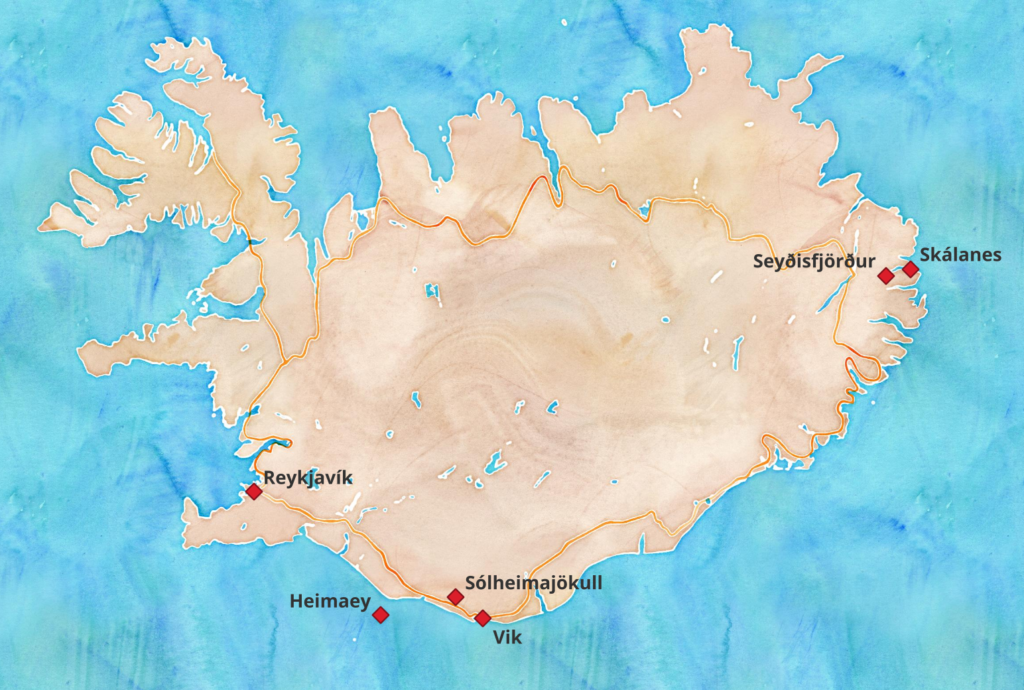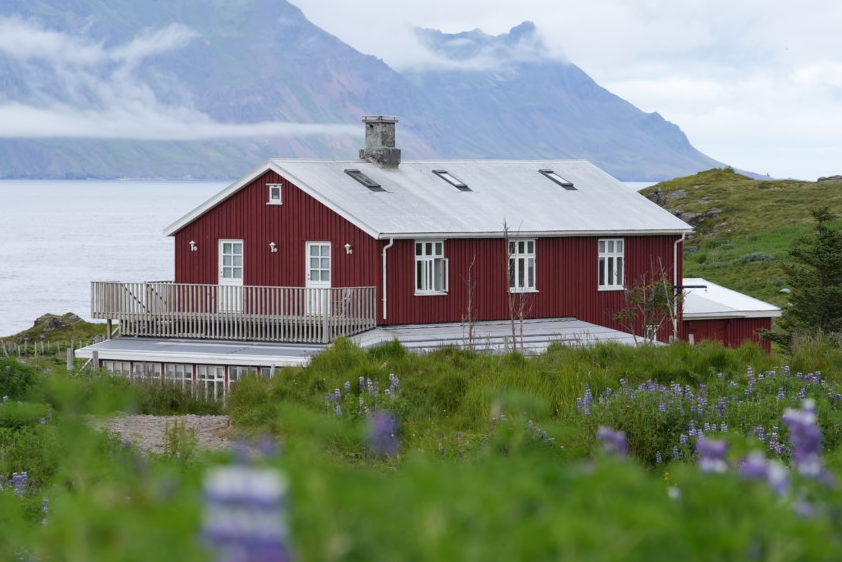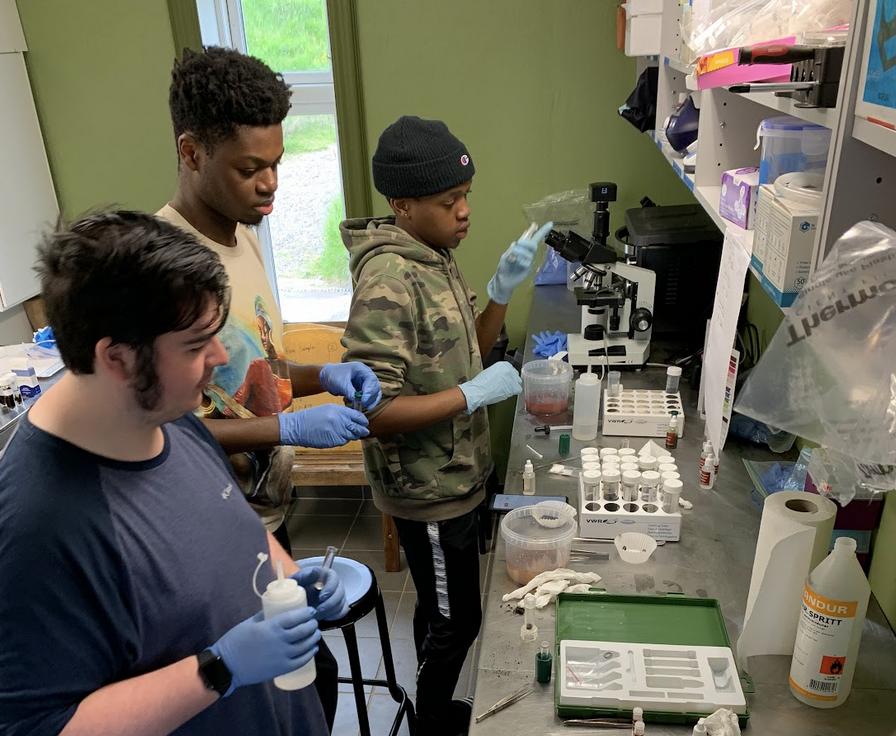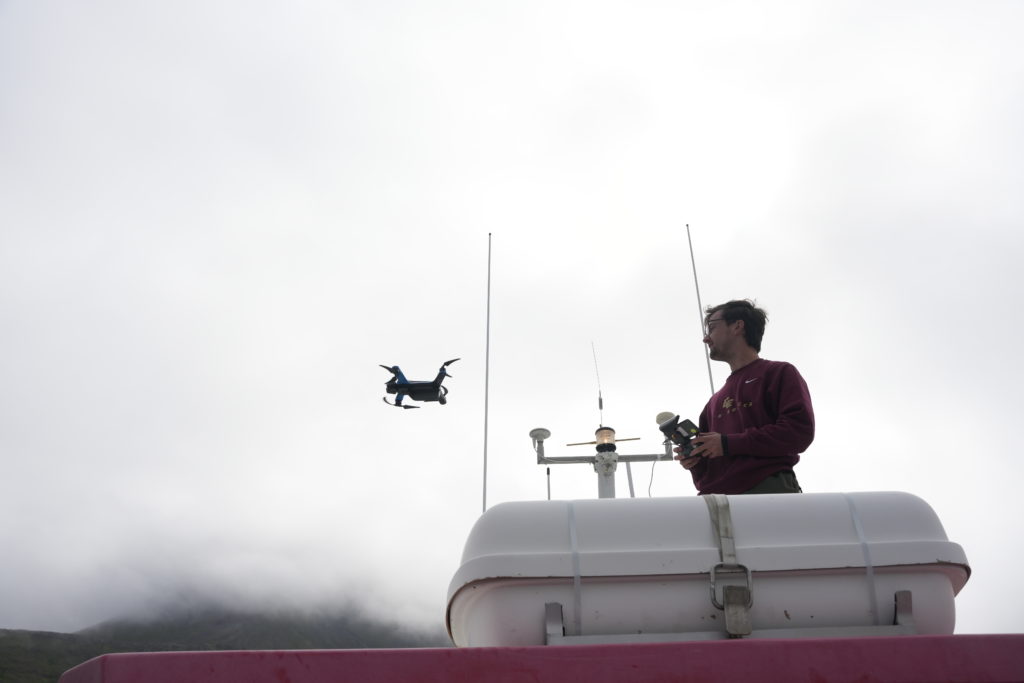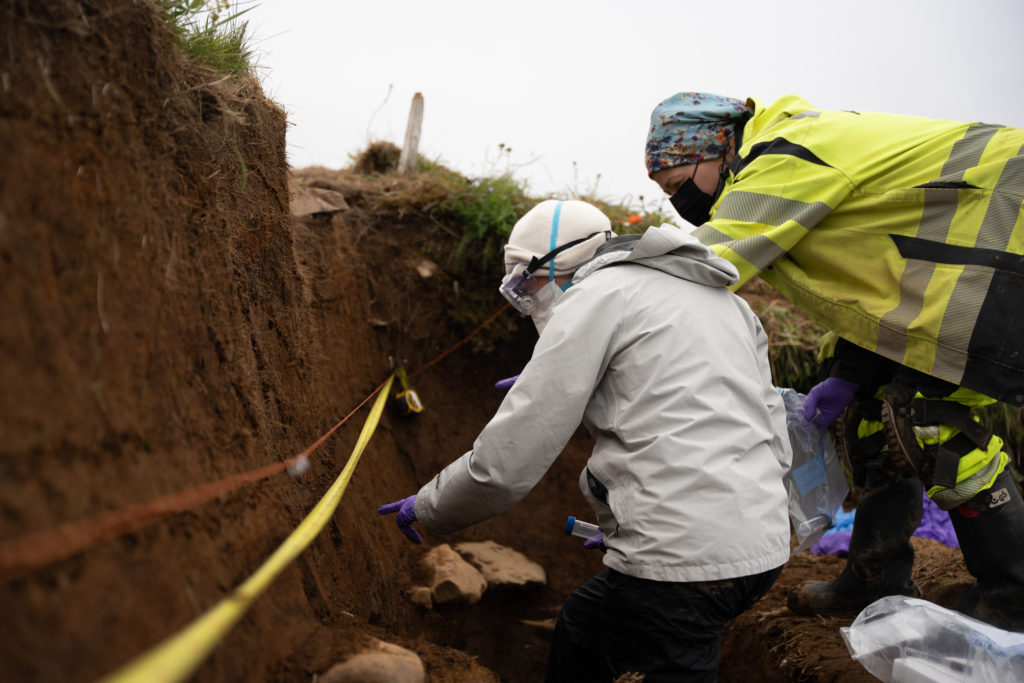Icelandic Field Studies (IFS) is a multidisciplinary science based program designed to immerse you in a multifaceted exploration of one of the most unique places on our planet. This program is part of Earlham College’s Epic Advantage initiative.
The 2026 Program Leaders are Charlie Peck and Porter Libby
2026 Information Sessions
Thursday October 16th @ 12:00pm (CST 103)
Tuesday October 21st @ 4:00pm (CST 103)
Friday October 24th @ 1:00pm (CST 103)
Program Information
As an IFS participant, you will:
- Study a subset of archaeology, geology, biology, engineering, environmental sustainability, and computer science, depending on your interests
- Study the history and culture of Iceland
- Participate in data collection and contribute to long-term field studies (see below)
- Explore the natural wonders of Iceland, tour geothermal and hydro power plants, hike on a glacier and volcano and soak in geothermal baths
- Develop cultural competence through international travel
- Reflect and grow through outdoor education principles and work together in a collaborative, multidisciplinary team
What are the program requirements?
- Interest in the work we do – any student with any background is welcome!
- A spirit of adventure and positive can-do energy
- A 0-1 credit Spring 2026 prep class
- 1-2 credits of Spring 2026 research
- Present your findings at the Fall 2026 Epic Expo as a poster or oral talk
- A valid passport (and visa if necessary – Earlham will help if you don’t have one)
How long and where will we be in Iceland?
- 3 weeks, roughly 10 July through 30 July.
- Reykjavík, the capitol city – we explore its downtown, the National Museum and their fabulous swimming pools.
- Skálanes, a nature reserve on the east coast outside of Seyðisfjörður where we spend about a week collecting samples and images, doing analysis, and enjoying the birds, sea mammals, and views of the mountains and fjord.
- Vestmannæyjar Islands, particularly Heimaey – we visit the Eldheimar museum and hike their two volcanoes, Eldfell and Helgafell. We spot puffins and other sea birds.
- Sólheimajökull glacier, where we take soil samples and hike the nose of the glacier to measure its volume loss each year
- Vík, our layover as we work at the glacier, with incredible black sand beaches and columnar basalt structures.
- Eyjabakkajokull glacier, new this year. This is an outlet glacier on the Northwest corner of Vatnajokull, Europe’s second largest glacier, located in the Southeast of Iceland.
How will we live and work in Iceland?
- We stay in hostels, with 2-4 single beds per room
- We cook most meals for ourselves, sharing the duties of food prep and clean up
- We travel in large vans and airplanes to our destinations
- We enjoy each other’s company, create shared playlists for long drives, play games together, and check in daily with the group.
Our Current Projects
Environmental DNA
Environmental DNA, or eDNA, is an emerging field in environmental sciences. It is being used to monitor species presence/absence, species abundance, and species changes by collecting samples of soil, water, and even air.
Quadcopter Surveying
Quadcopter surveying is a technique that allows us to measure a number of slow and rapid changes to the Icelandic landscape. We fly a grid-like pattern over an area, collecting images at a constant elevation. Software is then used to merge all the images together into a large composite image, and to create a 3d model of the area from the terrain details present in the images.
Ancient DNA and Archaeology
Ancient DNA (aDNA) is a new technology that is being applied to many types of archaeology sites. In Iceland, we work in collaboration with local archaeologist Rannveig Þorhallsðöttir to analyze aDNA from soil samples collected in various archaeological sites in East Iceland.
